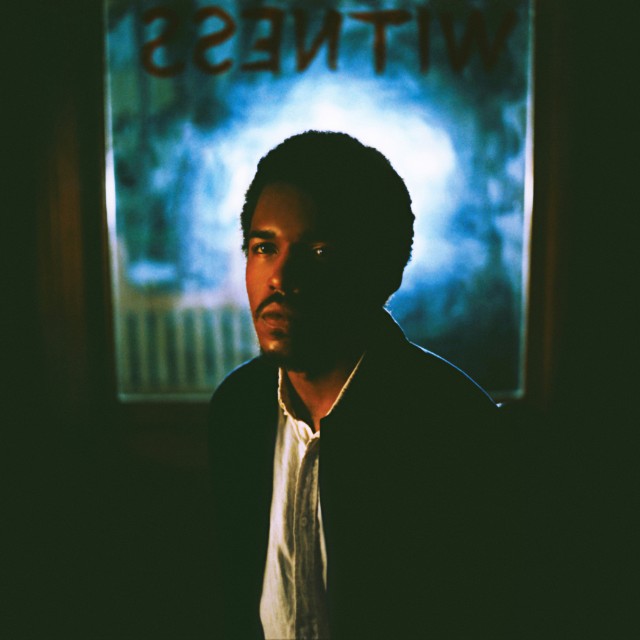Punk blues rocker Benjamin Booker says that his new album “Witness” asks two questions he thinks every American needs to ask themselves — “Am I going to be a witness?” and, in today’s society, “Is that enough?”
The 28-year-old New Orleans singer-songwriter poses these questions at the end of a short essay posted on his website that preludes his album and explains its inspiration. Produced by Sam Cohen and released June 2, “Witness” is all about trying to exist in a world of hard truths and increasingly polarized politics. The record also contains a heavy dose of self-examination, especially when faced with injustice.
The soulful title track features a chorus sung by legendary rhythm and blues singer Mavis Staples. Booker co-wrote the song “Take Us Back” for Staples’ latest album and their collaboration and energy shine here as well.
“Am I gonna be a witness?” Staples sings, with Booker’s biting verses making it seem like a matter of when, not if. With a feeling of mounting pressure driving the track, it becomes clear that “Witness” isn’t a protest song — it’s a “should I protest?” song. And the same goes for the rest of the album.
The transition into the chorus evokes certain images and situations that the nation at large has unfortunately become all too familiar with.
“See we thought that we saw that he had a gun / Thought that it looked like he started to run,” Booker sings.
These lyrics are just vague enough that Booker could be referring to Trayvon Martin, Tamir Rice, Philando Castile or all of the above. Recently, the Castile tragedy resurfaced in the news in the form of an acquittal for the officer that killed him and the release of graphic dashcam footage of the shooting — just more examples that the scars of racial injustice in America may never really heal.
Along with condemnations of injustice, introspection mixes throughout the album, from the swaying, simple “Motivation” to the slow, thumping “Carry.” “Right On You” — the buzzing opening track — lays out the singer’s priorities with a kick-the-door-in attitude.
“So I start selfish, on my own / I’ll be damned if I don’t get what I want … Right now I can only think for one,” Booker sings.
Later in the album, “Believe” contrasts the selfishness from “Right On You,” beginning with a set of weeping strings and the lyric, “I just want to believe in something / I don’t care if it’s right or wrong … How can I make it on my own?”
Booker sings from such a low place, as though he is ready to accept any ideology or -ism on the spot for the sake of self-preservation.
Yet near the end of the song he realizes that accepting any belief isn’t enough to fill some voids — “You found something to follow / But you’re still feeling hollow / I don’t know what I’m missing,” Booker sings.
On the surface, Staples’ voice alone clearly connects Booker and the album to civil rights activism, but other inspirations are revealed with a bit more digging.
For instance, Booker explains the album’s title in his essay, citing a New York Times interview with James Baldwin, specifically Baldwin’s answer to the question, “What are you a witness to?”
“Witness to whence I came, where I am. Witness to what I’ve seen and the possibilities that I think I see,” Baldwin replied.
Booker also mentions Mahalia Jackson — the queen of gospel, civil rights activist and friend of Martin Luther King, Jr. — on the smooth, pensive “Overtime.”
“Mahalia’s singing how she got over … Make it to the end without going under,” Booker sings.
Fans of his first album may be disappointed in the lack of blues punk on “Witness” — it’s still there, but it’s mostly confined to “Right On You” and “Off The Ground” — though perhaps Booker has replaced it with gospel and soul for good reason.
There is a quote often attributed to Jackson about why she picked gospel music as her genre of choice, even though she borrowed many sensibilities from the blues.
“I sing God’s music because it makes me feel free. It gives me hope. With the blues, when you finish, you still have the blues,” Jackson said.
Ultimately, “Witness” may not be as coherent as Booker’s first outing — which illustrated the story of a son who had lost his way — but his second record is obviously much more ambitious.
By the end of the album, Booker seems to find a response to all the questions he has posed.
“And I know this won’t be easy / but I’m trying now / I’m gonna tear this building down,” he croons with finality on “All Was Well.”
The final image of the album is one of Booker attempting, with newfound resolve, to uproot the foundations of oppression, and it is then that Booker proclaims his answer.



